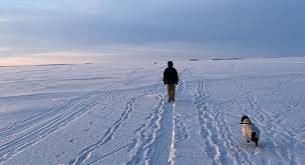Winter Chaos: How Severe Weather is Disrupting Lives Across North America and Europe"
As winter tightens its grip, severe weather conditions are wreaking havoc across North America and Europe, disrupting daily routines and causing significant challenges for residents, travelers, and authorities. Heavy snowfalls, freezing rain, and icy conditions have transformed cityscapes and rural areas into treacherous terrains, prompting widespread travel delays, road closures, and power outages. This season’s unusual intensity is attributed to several factors, including a series of powerful low-pressure systems and increased atmospheric volatility that are affecting both continents.
In North America, cities like New York, Chicago, and Toronto are dealing with repeated snowstorms that blanket roads and disrupt public transportation systems. Airports are experiencing delays and cancellations, leaving travelers stranded, especially around the holiday season. The Arctic air masses pushing southward have brought temperatures below freezing across much of the Midwest and Northeast, intensifying the dangers on highways and affecting the economy as many businesses face disruptions. For those without adequate shelter, the plunging temperatures are life-threatening, prompting cities to open warming centers and increase outreach to homeless populations.
Europe, meanwhile, is facing similar chaos. From London to Berlin, snow and ice have led to dangerous conditions on roads and railways, grounding flights and forcing authorities to deploy additional resources for snow clearing and emergency response. In France and Germany, where milder winters are common, the sudden onslaught of wintry weather has caught many by surprise, leading to temporary school closures and advising residents to avoid non-essential travel. The cold snap has also driven up energy demand, putting additional strain on supply chains already stretched by recent geopolitical tensions.
Experts attribute this heightened winter weather to the increased frequency of polar vortex disruptions, a phenomenon that has become more common with changing global temperatures. These disruptions send frigid Arctic air streaming southward, impacting weather patterns in regions unaccustomed to prolonged freezes. With climate change contributing to more volatile weather, such extreme winters may become more frequent and intense.
In response, governments and local agencies are working to enhance their preparedness, investing in better infrastructure, and increasing coordination for efficient snow and ice removal. However, as the winter season continues, North America and Europe are likely to face further disruptions, underscoring the importance of individual preparedness, updated weather forecasts, and resilient infrastructure to mitigate the impact of extreme weather.



No comments yet
Be the first to share your thoughts!